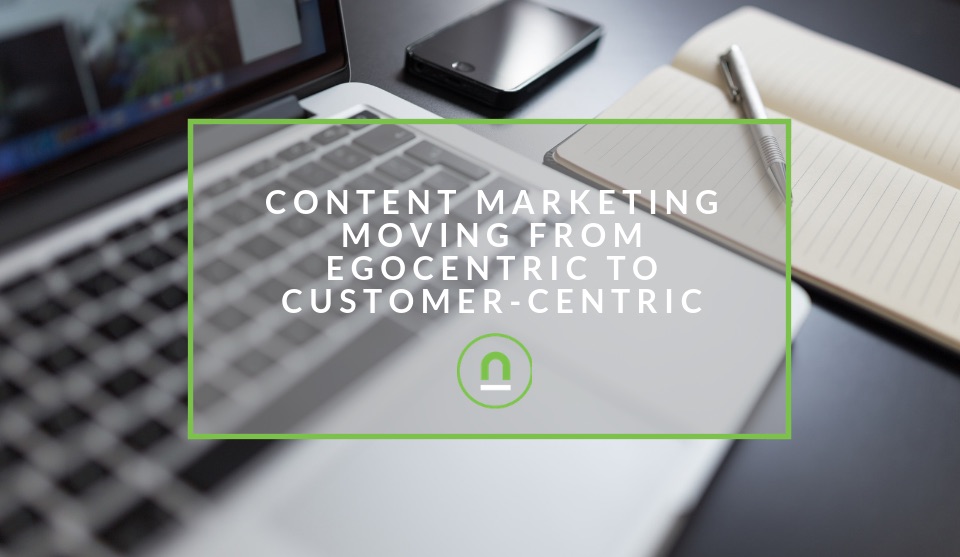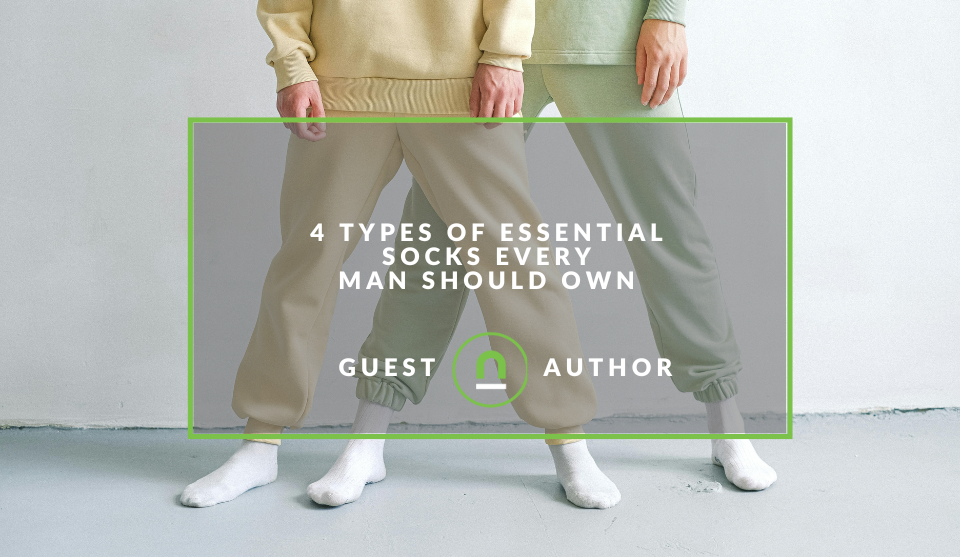Recent posts

Money Talks
Everything You Need to Know About SASSA Status Check
13 April 2025

Mind, Body & Soul
The Genetic Diversity of Cannabis Seeds
12 April 2025

Money Talks
How Small Businesses Can Leverage Blockchain Technology
02 April 2025

Industry Experts
Mastering Personalization in Digital Marketing
31 March 2025
Popular posts
Extravaganza
Trending Music Hashtags To Get Your Posts Noticed
24 August 2018
Geek Chic
How To Fix iPhone/iPad Only Charging In Certain Positions
05 July 2020
Extravaganza
Trending Wedding Hashtags To Get Your Posts Noticed
18 September 2018
Money Talks
How To Find Coupons & Vouchers Online In South Africa
28 March 2019
Content Marketing Is Shifting From Egocentric To Customer Centric
06 April 2019 | 0 comments | Posted by Che Kohler in nichemarket Advice
Digital marketing is one discipline that loves its buzzwords and cliches, one of them being content marketing and the age-old cliche, "Content Is King". We've heard this echoed by many a thought leader, influencer and marketing guru. They love shilling you the field of dreams approach to digital marketing, "if you build it, they will come" which may have worked in the past, but the market has matured. The introduction of new competitors, the maturity of the internet user, the lower attention spans, the share volume of content and information make it harder to cut through to the noise.
Digital marketing and especially content marketing has begun to shift from who shouts the loudest to who seems the most relatable. I have spoken before on the decline of organic reach and how marketers need to adapt their strategies if they want to survive in 2019 and beyond.
Content marketing is letting the user sell the product to themselves
As the algorithms on social media shift to favour UGC reactions and curation in favour of paid promotion it is still possible to gain traction with users, but you're content needs to resonate with them consistently, that's right content is the product. When you're a digital business you lose a lot of the selling power the face to face sales clerk has in convincing a person, answering and allaying their fears but it doesn't mean it cannot be done.
By creating an effective content strategy that is personalised, tells relatable stories and places the consumer in applicable situations where your product helps solve their problem, you begin to bridge that gap.
When marketers realise that their content efforts are part of the product they offer you understand how powerful it can be. When you create valuable stories, you shape a digital experience that resonates with customers which will often get them to trust you much faster and reduce the lead time to conversion or have them amplify your content to their network of people they feel your content applies to.
In either case, your content effort would be doing exactly what you wanted it to do. To invoke a positive brand association and a reaction.
A shift from egocentric to customer-centric
Content marketing from brands have traditionally been egocentric and heavily focused on them (products, capabilities, company) instead of the customer (and the benefits that their solutions can enable or present. I am often astounded at how unimaginative marketers can be, this is your profession, its what you signed up for and you get paid to do, so don't tell me your product is boring.
I blog about digital marketing and too many and even most people it is a pretty dull topic. We try to always shape our content into various forms that appeal to individual consumers of digital.
A good example of this would be to check out our SEO tips for fashion bloggers or SEO Tips for Travel sites. While the general principles may be similar, the content is shaped in a way that speaks to that specific user's needs, questions and daily practices. This makes the material more relatable and more valuable to the reader.
How to build a customer-centric content strategy
Unlike egocentric brands that only speak about themselves and their benefits, consumer-centric content focused brands tend to speak around a standard “core narrative,” which is the first step to building your storytelling strategy.
1. Define your narrative
Think of the experience your brand, product or service should envoke, how should customers feel about your brand after use, what they should experience when using your product and service and then tailor your content to fit these narratives.
2. Adapt and personalise your story
Now that you have a core narrative, you can then start to get more granular and apply it to your various target markets. This helps you retain the core experience your brand invokes but leverage it into personalised experiences for your multiple customers.
An example of this is you would speak differently to a student planning their first overseas trip to that of a business traveller.
3. Combine it with your egocentric content
Just because storytelling has started to become a more popular medium does not mean all your old content or egocentric content no longer works. You can keep that around and find interesting ways to interlink the two content types.
You can also look at ways of creating various funnels using your new twofold content strategy and flow certain stories to certain egocentric pieces. For example, the student experience would then flow into the ease and price egocentric content as you push the user further down the funnel and closer towards conversion.
Learn to tell stories not just repackaging facts
While your competitors may continue to wrap up price, product, place and promotion style content and repurposing the same points to try an convert the small % of users already at the end of the decision making process you can start to build a funnel that will eventually create a flywheel that churns out a healthy ROI over time. Playing the long game may not have been a strategy for tech and online companies in the past, but it's becoming apparent that is where the focus needs to shift towards.
Once you can tap into the experiences consumers have, you can then start to create rather interesting and granular narratives that appeal to various subsets of your community.
Once you start building this funnel of endearing storytelling, you will see customers begin to trust you, amplify you and remain with you as they not only enjoy your service but feel attached to it, which is how you start to build a loyal customer base that will encourage repeat purchasing and a longer customer life cycle.
Tell us your content marketing story
Have you been frustrated with content marketing in the past? How did you or the company overcome it? Are there any tips you would like to share on working in content marketing? Share it with us in the comments.
Contact us
If you want to know more about content marketing for your business, then don’t be shy we’re happy to assist. Simply contact us
Are you looking to promote your business?
Business owners can create your free business listing on nichemarket. The more information you provide about your business, the easier it will be for your customers to find you online. Registering with nichemarket is easy; all you will need to do is head over to our sign up form and follow the instructions.
If you require a more detailed guide on how to create your profile or your listing, then we highly recommend you check out the following articles.
Recommended reading
If you enjoyed this post and have a little extra time to dive deeper down the rabbit hole, why not check out the following posts on content marketing.
You might also like
4 Types of Essential Socks Every Man Should Own
25 March 2025
Posted by Candice Reed in Fashionista
Upgrade your sock drawer! Discover the four essential sock types every man needs for style & comfort. From dress to athletic, we've got your needs co...
Read moreWhat Are Relational Database Management Systems?
28 March 2025
Posted by Che Kohler in nichemarket Advice
Learn what relational database management systems are, how they organize data using tables and relationships, and why they remain essential for busin...
Read more{{comment.sUserName}}
{{comment.iDayLastEdit}} day ago
{{comment.iDayLastEdit}} days ago
 {{blogcategory.sCategoryName}}
{{blogcategory.sCategoryName}}


